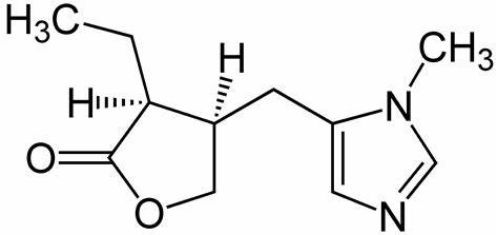The first presbyopia eye drops AGN-190584 has a remarkable effect
- Did Cloud Seeding Unleash a Deluge in Dubai?
- Scientists Identify Gut Bacteria and Metabolites that Lower Diabetes Risk
- OpenAI’s Model Matches Doctors in Assessing Eye Conditions
- UK: A Smoke-Free Generation by Banning Sales to Those Born After 2009
- Deadly Mutation: A New Monkeypox Variant Emerges in the DRC
- EPA Announces First-Ever Regulation for “Forever Chemicals” in Drinking Water
The first presbyopia eye drops AGN-190584 (pilocarpine 1.25%) has a remarkable effect: it works in 15 minutes and lasts for 6 hours!
The first presbyopia eye drops AGN-190584 has a remarkable effect. Allergan, a company of AbbVie, recently announced the complete results of Phase 3 GEMINI 1 clinical study at the 2021 American Society of Cataract and Refractive Surgery (ASCRS) annual meeting.
The study evaluated the efficacy, safety and tolerability of the ophthalmic drug AGN-190584 (pilocarpine, pilocarpine, 1.25% eye drops) in the treatment of presbyopia.
The results showed that the study reached the primary efficacy endpoint and the key secondary efficacy endpoint: patients who received AGN-190584 once a day had improved near- and medium-distance vision, and long-distance vision was not affected. After AGN-190584 is administered, the effect is rapid and the vision improves lasting for up to 6 hours.
The results of the patient report announced at the meeting showed that in the last 7 days of the trial, compared with the placebo group, patients in the AGN-190584 treatment group had clinically significant and statistically significant improvements in close reading ability and satisfaction. Reduced use of coping mechanisms for presbyopia. The positive findings of this study support the potential of AGN-190584 as a first-line treatment option for patients with presbyopia.
The data from the GEMINI 1 study and the GEMINI 2 study form the basis of the AGN-190584 New Drug Application (NDA). A total of 750 patients with presbyopia were enrolled in two phase 3 studies (GEMINI 1, GEMINI 2). In both studies, AGN-190584 reached the primary end point-it can improve near vision without diminishing distance vision. The statistical significance of distance vision. Currently, the New Drug Application (NDA) of AGN-190584 is undergoing review by the U.S. Food and Drug Administration (FDA), which is expected to make an approval decision by the end of 2021. If approved, AGN-190584 will become the first eye drops specifically used to treat presbyopia.
Michael R. Robinson, AbbVie Vice President and Global Head of Eye Care, said: “We are proud to lead the development of the first presbyopia treatment of its kind. If approved by the FDA, AGN-190584 is expected to become the first specialized Eye drops for the treatment of presbyopia. We are satisfied with the good safety of the Phase 3 GEMINI 1 clinical study, as well as the rapid onset and continuous improvement of short-distance and medium-distance vision without affecting long-distance vision.”

The chemical structure of pilocarpine (picture source: Wikimedia)
Presbyopia is a common and progressive eye disease that reduces the ability of the eyes to focus on close objects and affects most perennial people over the age of 40. In the United States, presbyopia affects nearly half of the adult population. Presbyopia is caused by the eyes losing the ability to focus on objects at close range. In non-presbyopic eyes, the transparent lens behind the iris can change shape to focus light on the retina, making it easier to observe things up close. In presbyopia, the transparent lens becomes hard and its shape is not easily changed, making it difficult to focus on nearby objects.
AGN-190584 (pilocarpine, pilocarpine) is a research and new optimized formula of pilocarpine (M-choline receptor agonist), specially designed to treat presbyopia, as a topical drug, instilled into the eyes once a day . The main mechanism of action is to increase the depth of focus by constricting the pupil, improving near and intermediate vision, while maintaining the pupil’s response to different lighting conditions. This effect is called dynamic pupillary modulation.
AGN-190584 is a research eye drop for the treatment of presbyopia, which is instilled into both eyes once a day. After dripping into the eyes, the effect will be effective within 15 minutes, and the effect is long-lasting, and the patient can read without glasses. It should be pointed out that AGN-190584 can not completely cure presbyopia, but can relieve its symptoms. The drug does not act on the lens, but shrinks the pupils, creating a pinhole effect by constricting the pupils and increasing the depth of aggregation.

Presbyopia-eye drops (picture source: ezcontacts.com)
A total of 323 presbyopia patients were enrolled in the GEMINI 1 study. These patients were randomly assigned at a 1:1 ratio and received AGN-190584 or placebo (drug-free eye drops) instilled into both eyes (both eyes) once a day , Lasts 30 days.
The study reached the primary and key secondary endpoints: at the 3rd hour (22.5%, p<0.0001) and 6th hour (9.7%, p=0.0114) on the 30th day, the AGN-190584 treatment group was comparable to the placebo group Compared with that, a statistically significantly higher proportion of patients get 3 or more lines in low light, high contrast, binocular distance corrected near vision (DCNVA) (the ability to read 3 lines more on the reading chart).
The results also showed that after the 30th day of administration, the rapid onset time of AGN-190584 in low-light DCNVA was 15 minutes and the duration was up to 6 hours, without affecting long-distance vision. The other endpoints of the evaluation showed that 75% of the patients in the AGN-190584 treatment group achieved a low-light DCNVA improvement of ≥2 lines, and 93% of the patients achieved a visual acuity ≥20/40 in the photopic (daylight) DCNVA. On the 30th day, distance corrected intermediate vision (DCIVA) was also observed to improve for up to 10 hours.
In this study, no serious adverse events during the treatment period were observed in any patients treated with AGN-190584. The most common non-serious adverse event (>5%) during the treatment period in the AGN-190584 treatment group was headache. Most side effects are mild and short-lived, with only 1.2% of patients discontinuing the drug due to adverse events.
(source:internet, reference only)
Disclaimer of medicaltrend.org
Important Note: The information provided is for informational purposes only and should not be considered as medical advice.



